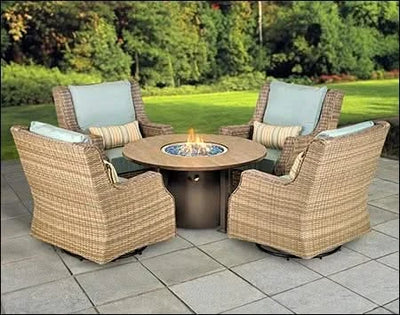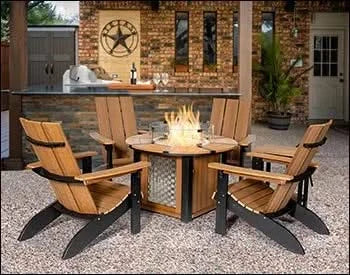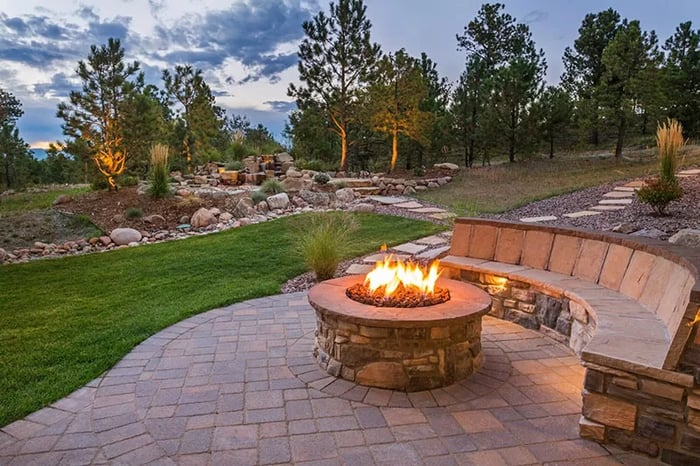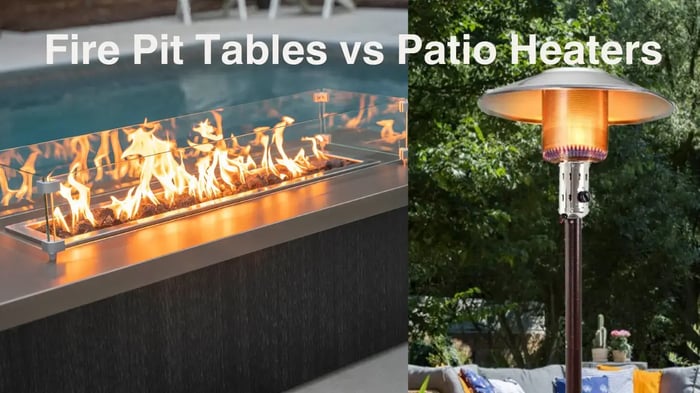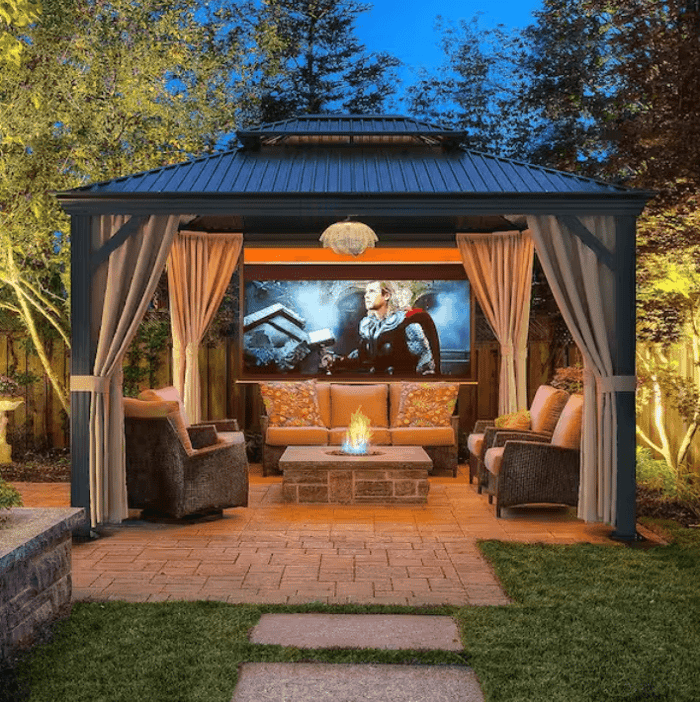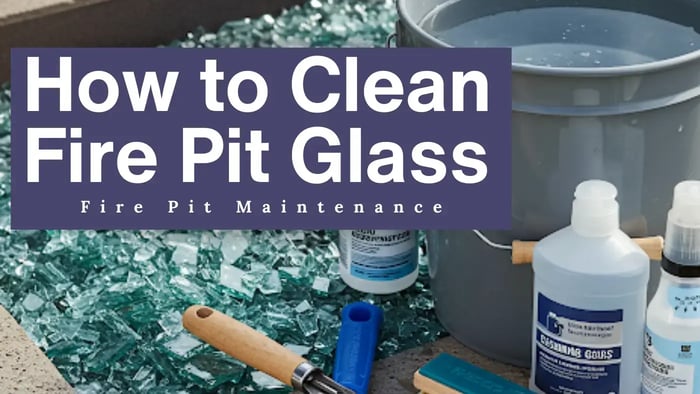Houston's warm climate makes it perfect for outdoor living, and a fire pit can be a fantastic addition to any backyard. However, with concerns about wildfires and air quality, it's essential to understand the local regulations regarding fire pits. Let's delve into the world of Houston fire pit laws and discover if you can safely enjoy this popular feature.
Table of Contents
Are Fire Pits Legal In Houston Texas?
While Houston generally permits recreational fires and fire pits, there are essential guidelines to follow. To avoid any legal issues or safety hazards, it's crucial to familiarize yourself with the following regulations.
Understanding Fire Pit Regulations in Houston
- Check local ordinances: Always verify the specific rules for your neighborhood or HOA. Some areas may have additional restrictions beyond city-wide regulations.
- Be aware of burn bans: During periods of dry weather, Houston may impose burn bans to prevent wildfires. Stay informed about these restrictions to avoid penalties.
- Choose the right fuel: Understand which fuels are permitted for your fire pit. Some areas restrict the use of wood, while others allow gas or propane.
- Consider fire pit type: Different fire pit designs (chimney, pit, bowl) have varying regulations. Ensure your chosen type complies with local ordinances.
Alright, let's dive into the nitty-gritty of fire pit rules in Houston. Trust me, knowing the rules can save you a world of trouble (and maybe even a hefty fine).
Local Ordinances
This is where things can get a bit tricky. Fire pit rules aren't a one-size-fits-all kind of deal. What's legal in one part of Houston might be a big no-no in another. It's like trying to figure out which taco truck has the best al pastor - you gotta do your research. Your best bet is to check with your local city or county government. They'll be able to give you the straight scoop on what you can and can't do with your fire pit. And if you live in a neighbourhood with a homeowners association (HOA), don't forget to check their rules too. They might have some extra restrictions up their sleeve.
Burn Bans in Houston, Texas
Burn bans are like the party poopers of the fire pit world. They can pop up unexpectedly, especially during dry spells. When a burn ban is in place, you're basically grounded from your fire pit. No s'mores, no campfire stories, nothing. It's a bummer, but it's important to follow these restrictions to protect our community from wildfires. To stay in the know, keep an eye on local news and weather reports. They'll usually give you a heads up about any upcoming burn bans.
Permitted Fire Pit Fuels in Houston, Texas
What you can burn in your fire pit depends on where you live. Some neighbourhoods are cool with wood, while others only allow gas or propane. If you're planning on burning wood, make sure it's seasoned and dry.
Wet wood is a pain to get going and produces way too much smoke. And remember, even if you're allowed to burn wood, there might be restrictions on the type of wood you can use. So, do your homework before you start stocking up on firewood.
For more information on what you can and cannot burn in your fire pit, check out our article on Can you burn rotten firewood in a fire pit? to gain a comprehensive breakdown of the different types of firewood and the best ones to burn in your fire pit.
Fire Pit Types

There are a bunch of different fire pit styles out there, from classic outdoor fire pit tables to fancy chimineas. But are they all legal? That's a good question. Some cities have specific rules about the type of fire pit you can use. For example, they might require a spark screen or a certain distance between the fire pit and your house. So, before you drop a bunch of cash on a new fire pit, make sure it's legal in your area.
Safety First: Fire Pit Guidelines
Okay, so you've got your fire pit all set up and you're ready to roast marshmallows. But before you light that match, let's talk safety. It's super important to set up your fire pit in the right spot and to follow some basic rules to keep yourself and your home safe.
Location: Discuss ideal placement for a fire pit, considering distance from structures and flammable materials.
Where you put your fire pit matters. A lot. You don't want to be a neighbor nightmare by setting your house on fire, right? So, find a spot that's far away from anything that could catch fire. At least 10 feet away from your house, shed, or any trees is a good starting point. And clear away any dry leaves or grass around the fire pit. You don't want any flying embers starting a surprise bonfire.
Permits for Fire Pit Use
Depending on where you live, you might need a permit for your fire pit. It's kind of like getting a license to have a good time, I guess. Check with your local city or county to see if you need one. Some places have strict rules about the size of your fire pit or where you can put it. It's better to be safe than sorry and get the proper paperwork in order.
Wind Conditions when using your Fire Pit
Wind can be a real party pooper when it comes to fire pits. If it's too windy, those sparks can fly and cause trouble. Before you light that fire, check the wind direction. If it's blowing towards your house or your neighbour's, it's probably not a good idea to start a fire. Safety first, people!
Proper disposal of Fire Wood and Ashes
Once your fire is out, don't just dump the ashes in the trash. Let them cool completely before disposing of them. It's a good idea to soak them with water first, just to be extra safe. Never put hot ashes in a plastic bag or a cardboard box. Use a metal container with a lid. And when you're ready to get rid of them, take them to a designated ash disposal area.
Alternative Heating Options
So, you're all fired up about getting a fire pit, but what if you can't? Maybe there's a burn ban, or maybe you just don't have the space. Don't worry, there are other ways to get that cozy, outdoor vibe.
Propane heaters
Propane heaters are like the superhero of outdoor heating. They're quick to set up, they don't produce smoke, and they pack a serious heat punch. Plus, they're a great option when there's a burn ban in place. You can still enjoy your patio or backyard without worrying about breaking any rules. The only downside is that you'll need to keep an eye on your propane tank and refill it when it runs low.
Electric fire pits
Electric fire pits are like the modern-day version of a campfire. They're super convenient because you don't need to worry about wood, matches, or smoke. Plus, you can use them indoors or outdoors. The downside is that they might not give you the same cozy, campfire feel as a real fire. But if you're looking for a low-maintenance heat source, an electric fire pit could be the perfect choice.
Enjoying Your Fire Pit Responsibly
Okay, so you've got your fire pit set up and you're ready to roast marshmallows. But let's talk about being a good neighbour and keeping everyone safe and complying with common fire pit regulations.
Fire Pit Etiquettes
Nobody likes to be stuck in a smoky haze, so let's be considerate of our neighbours. If you live close to others, try to position your fire pit so that the smoke blows away from their homes. And don't burn wet or green wood, as it produces more smoke. Also, keep your fire small and controlled. A roaring bonfire might be fun, but your neighbours probably won't appreciate it.
Wildlife Safety when using Firepits
Animals are curious creatures, and they might be drawn to the warmth and light of your fire pit. To keep them safe, make sure to clean up any food scraps or debris around the fire pit. And if you see an animal getting too close, gently shoo it away.
Child and Pet Safety
Kids and pets are like little magnets drawn to fire. So, it's important to keep a close eye on them when they're around a fire pit. Never leave a fire unattended, and keep young children and pets at a safe distance. Consider using a fire pit screen to create a barrier. And remember, it only takes a second for a serious accident to happen.
While enjoying a cozy fire pit in your Houston backyard can be delightful, it's crucial to prioritize safety and comply with local regulations. By understanding the rules and guidelines, you can safely create a warm and inviting outdoor space. Remember, always check for burn bans and follow recommended practices to protect yourself, your neighbours, and the environment.


